Australia Day 2024 Honours List: The South Australians who made the honour roll
A local footy hero credited with saving a life and a pioneering scientist helping bring babies into the world are among the South Aussie inclusions on the honour roll.
SA News
Don't miss out on the headlines from SA News. Followed categories will be added to My News.
A local footy hero credited with saving a life, a pioneering scientist helping bring babies into the world are among the South Australian inclusions in this year’s Australia Day Honours List.
A total of 1042 Australians have been named in the list, with women making up just over half the recipients.
Almost 80 South Australians have been included.
See the full list of South Australian Australia Day honour recipients below.
DAVID KOCH AM
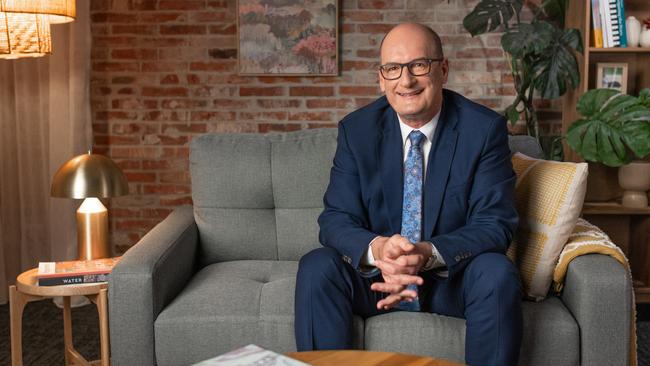
Former Sunrise host David Koch says it’s the work he has done behind the camera which has earned him a “humbling” Australia Day honour.
The longtime presenter, financial journalist and Port Adelaide president has been recognised with a Member of the Order of Australia (AM) in the General Division for his services to the media.
Koch said he’s most proud of his off-screen achievements.
“I’ve often said my job as co-host of Sunrise was a bit of a BS job compared to being in emergency services, or a first responder or a doctor, something like that,” he said.
“But I suppose this is an acknowledgment that you can really use that position to help others. “I’m shocked and humbled by the honour, there’s just so many people that do great things for the community. To be part of that group is special.”
Koch, 67, has long used his platform to passionately advocate for causes close to his heart, including organ and tissue donation.
With wife Libby, he established the Koch Centre for Youth and Learning with Youth Off The Streets to help disadvantaged young people in western Sydney.
As Port Adelaide chairman, SA-born Koch has led the club’s focus on improving indigenous education and health in local communities.
“It’s about using football to make them achieve more and give them goals,” he said.
“That’s what I love about the club, yes I want to win grand finals and win every game we possibly can but the difference we make in the community is just as incredible and just as important.
“Whatever you do in life, you’ve got to do something to improve the community – that’s our responsibility.”
A modest Koch described his four-decade career as a “series of mistakes”, stumbling into a cadet finance journalist role with The Australian in 1980, and eventually making his way onto TV with Seven’s early morning program.
He co-hosted the show for over 20 years, finishing up in June last year.
“I was supposed to fill-in on Sunrise for three months and it lasted 20 years. My life is a series of mistakes,” he joked.
“But that profile has allowed me to get things done and do good things.
“Hopefully it will inspire people to give back. I’m a big believer that you don’t live long and while you’ve got the time, try and make a difference,” Koch joked.
Despite the ongoing debate over Australia Day, Koch said it was wonderful occasion to celebrate everything special about our great nation.
SARAH ROBERSTON AO
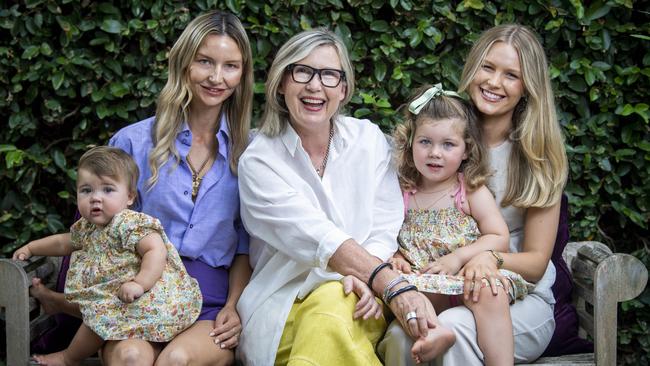
Professor Sarah Robertson AO had her first daughter when aged in her 20s and the healthy pregnancy came fairly easily – she recalls some friends “were not so lucky.”
“It seemed to be the roll of the dice 40 years ago and I thought we could do better,” she said.
“I wanted to improve outcomes for families by doing better science, by going back to basic biology.”
This fuelled an extraordinary career for the eminent reproductive biologist whose research in reproductive immunology pioneered new understanding of the origins of health at conception.
She has served at the highest echelons of multiple prestige organisations, published more than 230 scientific journal papers and helped develop EmbryoGen, an immune-based intervention for repeated IVF failure and miscarriages now sold in more than 50 countries.
Prof Robertson has been awarded an Order of Australia for her “distinguished service to medical research, particularly reproductive biology and immunology, and to professional societies”.
However, she stressed to The Advertiser: “SA leads the world in this area of research and it is important to acknowledge there have been at least 100 SA scientists whose contributions to this work is something to be very proud of”.
Prof Robertson, a mother of two daughters, wrote a column in The Advertiser more than a decade ago noting: “There is a common misconception that any baby who dies in the mother’s uterus was never meant to live – but only about 1 in 5 stillbirths is caused by genetic abnormality or malformation. That means many lost babies were not destined to die”.
She has worked relentlessly to improve those figures and is optimistic about the direction of research.
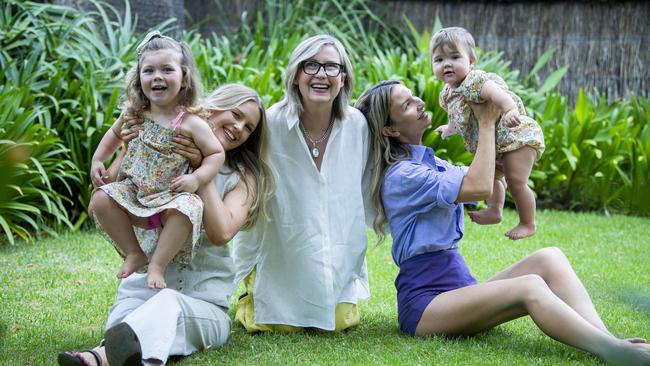
“I have always been interested in the processes surrounding conception and healthy pregnancy, in particular how the immune system contributes,” she said.
“By understanding basic biology we can develop new approaches to treat infertility and prevent and treat common pregnancy disorders.”
Prof Robertson noted while many disorders appear in late gestation, “the most important place to start a trajectory to a healthy pregnancy is at conception,” adding “The father’s contribution is also really important.”
Genetic issues can be the cause of problems, but Prof Robertson felt a better understanding of immune factors was crucial.
“Things like diet, metabolic function, microbiome, age, lifestyle come together to influence immune responses,” she said. “We are getting closer to figuring out through blood tests who is at risk — then use precision medicine to give them the best individual treatments.”
– Brad Crouch
NICK SWINGLER OAM
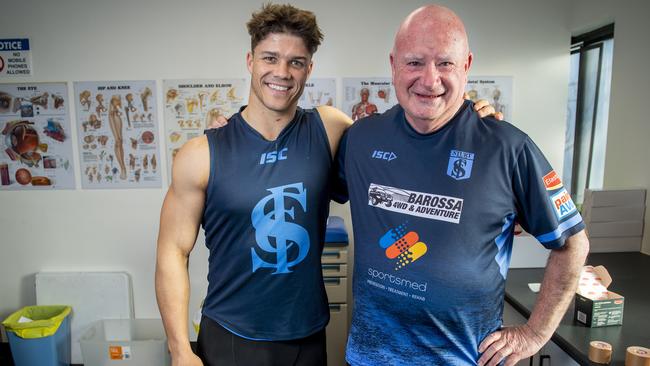
Sturt superstar Tom Lewis credits him for saving his life.
Now Double Blues head trainer Nick Swingler, 63, has been recognised nationally for his services to Australian football with a Medal of the Order of Australia (OAM) in the General Division.
“It’s very pleasing to have this acknowledgment but I’m more pleased that it shines a focus on and recognises the work that sports trainers do at state league and community clubs, no matter what the sport,’’ Swingler said.
“Unlike the AFL where they have access to doctors and professional care 24/7, the majority of the time the first person a player sees at this level of footy or a community sporting club is a sports trainer.
“There’s not enough of us, so something like this gives a bit of acknowledgment to the efforts that sports trainers put in at our level of sport, so I want it to be seen as an award for all sports trainers.
“The lifesaving bit doesn’t occur every week but it highlights the importance of our role.’’
Lewis, who is one of the SANFL’s premier midfielders, believes he might not be alive if not for Swingler’s expertise and quick thinking after he suffered a potentially life-threatening spleen injury following an incident in a game against Central District in 2022.
Feeling unwell the next morning, Lewis phoned Swingler who immediately identified the symptoms of a ruptured spleen and risk of internal bleeding and insisted he go for scans.
When doctors viewed the scans, they were amazed Lewis was still standing because of how much he had bled internally.
“If Nick hadn’t figured it out, I might not be alive today,” Lewis said.
Swingler, a retired teacher from Aldinga Beach, is entering his 44th consecutive year with Sturt.
He started as a sports trainer in 1980, was appointed head trainer in 1988 and head of medical services in 2022.
The Nick Swingler Rehabilitation Rooms at Unley Oval were named in his honour in 2017.
– Andrew Capel
BARBARA BAIRD AM & BRIGID COOMBE AM
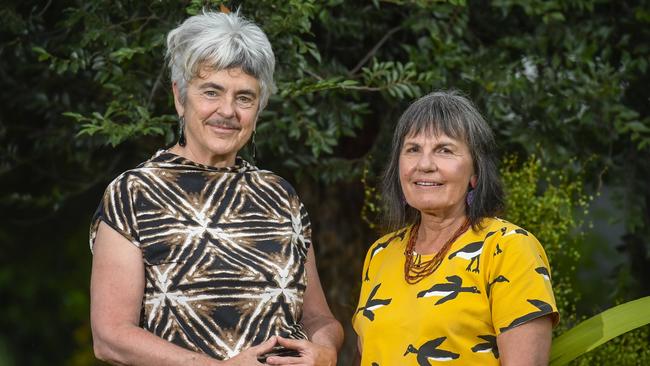
The paths of an Adelaide academic and a dedicated nurse converged more than two decades ago due to a shared passion to “normalise” abortion.
Now, they have become the first Australians to be awarded a Member of the Order of Australia (AM) for work in abortion care.
But the duo, each aged 66, who established the South Australian Abortion Action Coalition in 2015 say there is much more to do.
“This work takes lots of minds, lots of hearts … it is not easy, this award really, I hope, recognises all the providers and advocates who have come before me and taught me,” nurse Brigid Coombe said.
The mum and grandmother traces her drive to advocate for women in the abortion space back 43 years to when she was working at a family planning clinic in the Northern Territory.
“I became very aware of the importance of access to abortion … it is all very well for people to say you should have the right to abortion but if no-one is providing them, or if the law gets in the way, then women can’t act to control their fertility,” she said.
She said while many gains had been made there was still more to do.
“The decriminalisation of abortion has pretty much been completed across Australia but the most important thing now is for public provision (of services) … and the development of a skilled and sustainable abortion provision workforce.”
Associate Professor Barbara Baird, who specialises in Women’s & Gender Studies at Flinders University, agrees.
“The struggle to make abortion a normal part of sexual and reproductive health care is not over,” the Abortion Care is Health Care author said.
“We still need to give attention to this issue … it needs to be understood as an everyday straightforward healthcare matter.”
– Rebecca Whitfield-Baker
RAYMOND SPENCER AM
South Australia is a great place but needs to embrace change if it wants to fulfil its enormous potential, according to businessman and philanthropist Raymond Spencer, who has been made a Member of the Order of Australia.
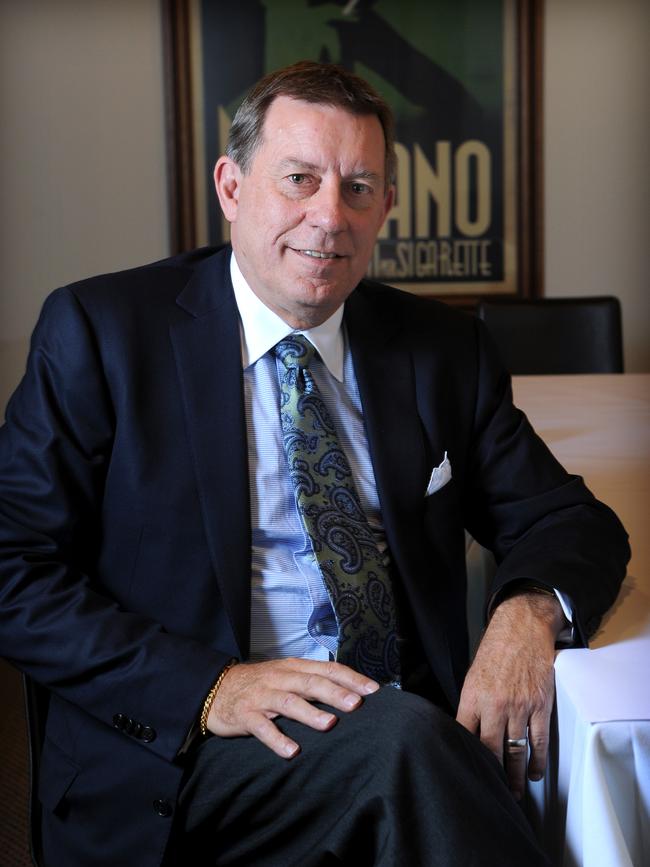
“There’s certainly hard decisions to make but I think the opportunities we have in this state, given all of the resources in food and agriculture, the resource sector, defence opportunities, our great education system, we really have a lot to build on,’’ Mr Spencer said.
He said improving productivity, cutting red tape and swifter government decision making were vital.
“If we’re going to reach even greater heights of prosperity and literally continue to be one of the most liveable places in the 21st century, we’ve got to address some of those issues,’’ he said.
Mr Spencer, 73, is chair of the Committee for Adelaide and has previously served as chair of the South Australian Medical Health and Research Institute and the Economic Development Board. He also owns the prestigious Hentley Farm winery.
Raised on the family farm at Clarendon, Mr Spencer returned to SA with his family in 2009 after selling software company Kanbay, which he co-founded, for $US1.2 billion.
“Being the first person in my family to go past grade seven in school I’ve certainly had a wonderful and probably very unexpected life journey,’’ he said.
HEATHER CROALL AM
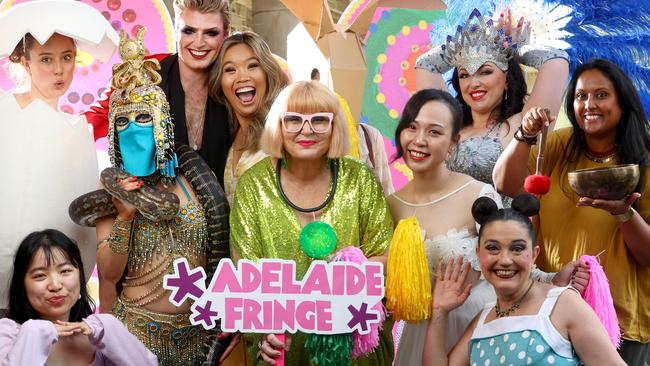
Heather Croall was just five years old when she and her family moved from the UK to Whyalla, as part of the government’s ‘ten pound Pom’ immigration scheme.
Those formative years, in the then-vibrant Eyre Peninsula town, would help foster Croall’s lifelong love of the arts.
“There was a huge amount of arts coming through Whyalla. We were exposed to a lot of fantastic shows and my mum would always take us to everything,” Croall said.
“I always loved the idea of being involved in the arts, I just wasn’t sure where or how. I was someone that was more behind the scenes or behind the camera – rather than in front. I liked organising things.”
Croall, 56, has followed through on her dreams, as a successful documentary filmmaker, chief executive and director of the world-renowned Sheffield Doc/Fest, and for the last nine years, as the boss of the Adelaide Fringe festival.
Her remarkable four-decade career has been recognised with a Member of the Order of Australia (AM) honour, in the General Division for significant service to the performing arts, as an administrator, advocate and filmmaker.
“I’m over the moon – it’s a real thrill. I’m very grateful,” she said.
“It means so much to everyone. The Fringe is a massive collaboration between artists, venues and the people who attend, and that’s who I share this honour with.”
After graduating from UniSA, she launched her own production company, Re Angle Pictures, in 1993, to produce and direct documentaries. Croall also got an early taste of the Fringe, running a venue and working on various projects.
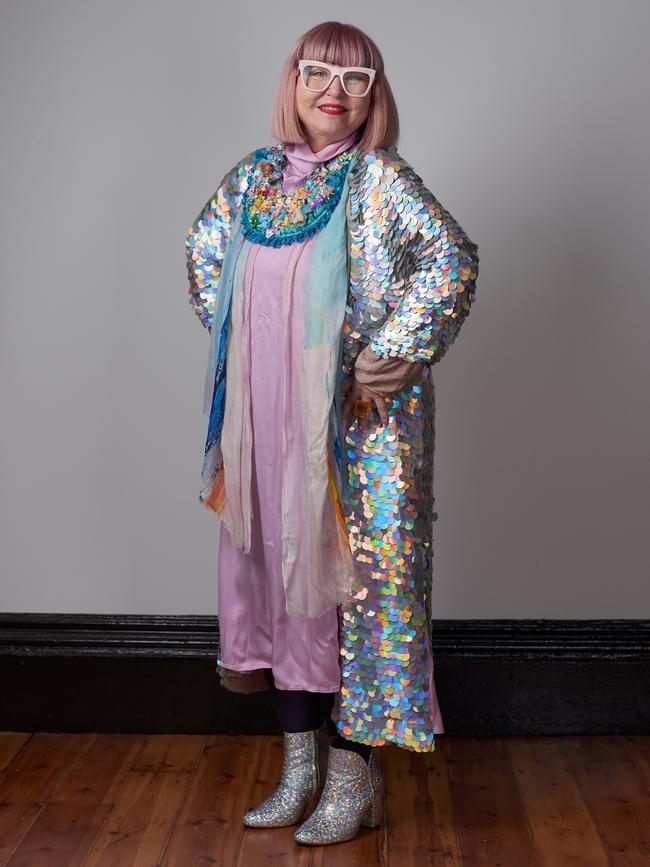
In 2006, she was headhunted to run the acclaimed Sheffield Doc/Fest, expanding the two-day event into a five-day festival, with a focus on providing creatives the tools to kickstart their careers.
Following a decade-long stint in London, Croall returned to Adelaide in 2015 for her own big opportunity as director and chief executive of her hometown arts festival – and she hasn’t looked back.
Adelaide Fringe ticket sales have doubled under her tenure, growing to over one million last year, thanks to an accessible and inclusive program.
She’s also led the digital transformation of the festival’s ticketing system, helping to “put more bums on seats”.
But Croall’s driving force remains creating jobs and opportunities for artists, which she managed to do successfully during her toughest period: the Covid pandemic.
“Seeing the joy it brought, the magic in the air … they were some of the happiest days. A lot of hard work paid off,” said Croall, who’s contracted until 2026.
“We’re facing some massive challenges ahead and we’re committed to raising enough funds to meet those challenges and to allow South Australia to continue to host the biggest arts festival in the southern hemisphere. We shouldn’t take that for granted, it doesn’t just happen.”
– Antimo Iannella
PETER CHRISTOPHER OAM
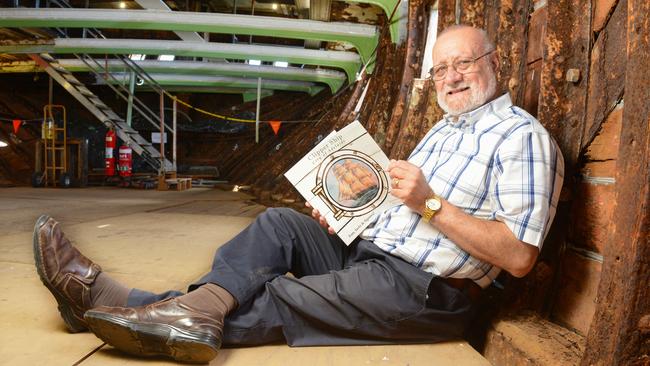
When Peter Christopher read an article in The Advertiser in June, 2000 about a ship rotting away in Scotland that was at risk of being demolished, he knew he needed to do something.
The ship was the world’s oldest clipper, and had been purpose built in Sunderland, UK, in 1864 to carry passengers and cargo to and from the city of Adelaide in SA.
Named the City of Adelaide, the clipper undertook 23 return voyages between London and Adelaide and more than 250,000 Australians can trace their heritage to her passengers and crew.
So when Mr Christopher, a scuba diver and volunteer maritime archaeologist since 1967, heard about her imminent demise, he gathered a group of like-minded South Australians around his kitchen table.
They formed a volunteer group called Clipper Ship, City of Adelaide and started a worldwide campaign to save the vessel.
The ship arrived in Port Adelaide in February, 2014 and today, nearly 10 years later, Mr Christopher, 75, has been awarded a Medal of the Order of Australia for his service to community history.
The award marks more than two decades of tireless work to first save, then transport and now restore the City of Adelaide clipper.
“It’s given me a lot of satisfaction,” Mr Christopher, who retired from his role as chief industrial officer for the Public Service Association of SA in 2015, says as he reflects on his role with the clipper. “I’m really proud of what the team has achieved.”
BRUCE CARTER AO
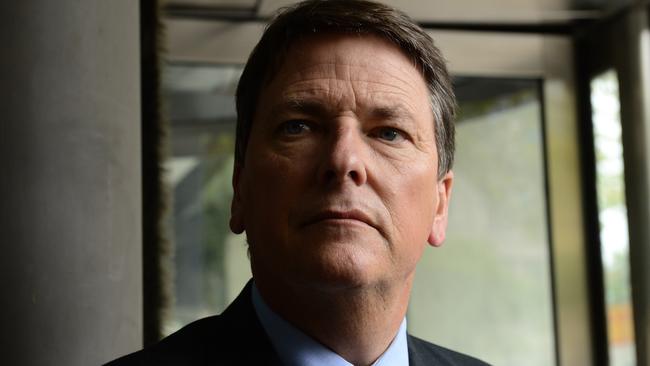
It will be only fitting that businessman Bruce Carter will celebrate his Australia Day honour by cracking open a bottle of quality South Australian red.
During his long and esteemed career, Mr Carter has been a staunch advocate for the advancement of the state’s people, businesses and industries.
As a chair and director of Australian Submarine Corporation, he is also playing a crucial role in ensuring its long-term success.
But he doesn’t feel weighed down by the burden of responsibility – instead, Mr Carter said he’s filled with great optimism about the future of the state.
“I think the future is as bright for this state as it’s ever been,” he said.
“The opportunities are there for us to take, provided we can get the people.”
Over his career, Mr Carter has held a long list of private sector roles including deputy chair and director of SkyCity Entertainment Group.
He has also served as chair of government organisations including the Economic Development Board, WorkCover South Australia and the Premier’s Climate Change Council.
At age 65, he has been made an Officer of the Order of Australia (AO) for distinguished service to business, to charitable organisations, and to the community.
Mr Carter, a father of four, has also spent decades volunteering for the National Heart Foundation in a bid to reduce the damage that heart disease does within the community.
As a source of relaxation, he enjoys singing as member of the Kapelle choristers.
ROBERT HOFF AM
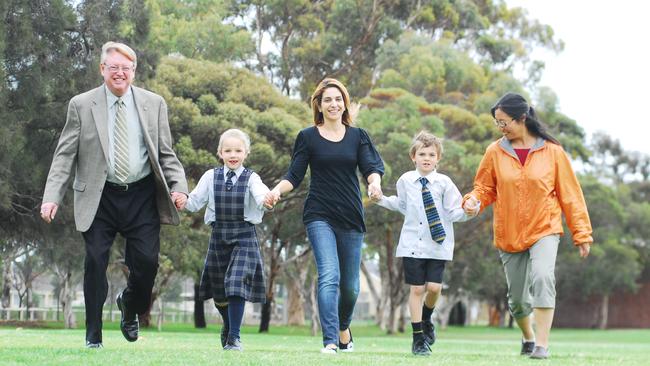
Robert Hoff was just 24 when he first became principal – a dream of his since he was in Year 5 at Nailsworth Primary School.
“I wanted to be a policeman, I wanted to be a pastor in the church and then I wanted to be a teacher,” Mr Hoff said.
“And it turned out (with) teaching, I did all three.
“You’re sort of a policeman, guiding people and supporting people and when you’re a pastor in the church you’re guiding people spiritually.”
The 75-year-old retiree spent more than 50 years working in education and has now been made a Member of the Order of Australia.
His first post as principal in his 20s was at St Paul Lutheran Primary School in 1973, which he said he only survived because of his support network.
“I always led schools that were about student wellbeing,” Mr Hoff said.
But his longest stint was at Immanuel Primary School from 1997 to 2018 and in that time notable students thrived under his leadership.
Among them were footy stars including former Collingwood player Matthew Scharenberg and even a prominent concert pianist.
“They’ve all been leaders in their various fields whether they’ve become lawyers and one has become a manager of Woolworths,” Mr Hoff said.
Mr Hoff’s award was recognition of primary education, he said, which was often overlooked in favour of secondary schooling and university.
– Shashi Baltutis
KATE LLEWELLYN AM
Kate Llewellyn began her writing career in secret.
She did not feel as though she had “permission” to write on a full page, so instead wrote her first poems on the smallest corners of her notepad.
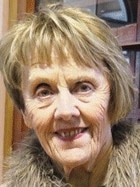
“It never occurred to me that I could (write on the full page). It was a very secretive thing,” she said.
Ms Llewellyn, 88, often used her upbringing in Tumby Bay as a source of inspiration.
“I had a beautiful, safe, and happy childhood,” she said.
“My parents were in love with each other. We had the sea as our playground.”
Her confidence blossomed when she began her studies at the University of Adelaide; in particular when someone suggested she enter the Bundey Prize, a competition judged by academics for the best poem or group of poems at the university.
After winning the prize, her self-belief grew.
“The lid came off the kettle and the poetry steamed out,” Ms Llewellyn said.
“Once I had permission (to write), I was off and running.”
Earning a Member of the Order of Australia (AM) for significant service to literature as an author and poet means the world to Ms Llewellyn, who said it “made a joyful boost” to her life.
“It means a great deal because towards the end of your life you think that things are slowing down and that all the fun is over,” she said.
“You have this wonderful news out of the blue and it’s beautiful. It’s inspiring and I’m honoured.”
Reading “well” was a key part of both her life and career and she implored the younger generations to do the same.
“It (reading) develops you, your mind, and your character,” she said.
“Don’t read junk. It will slow you down.”
– Charlie Dadds
JOHN BAKER AM
What started as a young eight-year-old boy in the Surf Life Saving Australia Nippers has become an entrenched part of John Baker AM’s being and life.
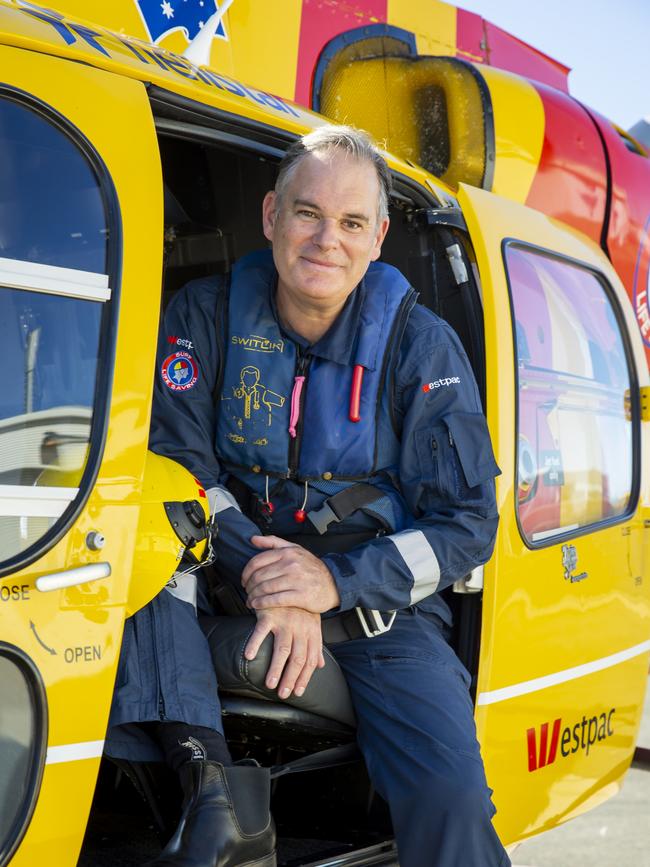
Now the 54-year-old is in his second term as president of SLSA and SLSSA, with a more than 30-year career with the helicopter rescue crew, and has worked alongside the SA Returned and Service League, the Red Cross and The Smith Family.
“It’s not what I do, it’s who I am … without being silly, it’s a bit of a calling,” he said.
But above all, Mr Baker said his proudest moment was the day his three children, Harry, 23, Kate, 21, and Annabel, 16, all joined him on patrol for the first time after gaining their own bronze medallions.
Mr Baker said being honoured for significant service to surf life saving, to veterans and to the community made him proud, but above all he felt lucky.
“I’m very lucky to have been involved with causes that I love and that I’ve been able to make a long lasting positive impact.”
Mr Baker said all Australians had it within them to make a change.
“Everyday Australians really do give of themselves and really think about what they can do for their community and friends … volunteering is what we do,” he said.
SA AC RECIPIENT
Companion of the Order of Australia
Lorraine Ann MAZEROLLE
For eminent service to education, to the social sciences as a criminologist and researcher, and to the development of innovative, evidence-based policing reforms. Ms Mazerolle is originally from Adelaide and a graduate of Brighton High School and Flinders University.
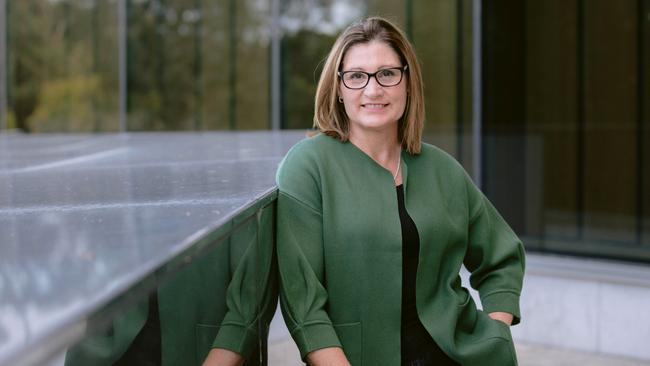
SA AO RECIPIENTS
Officer of the Order of Australia
Bruce James CARTER
For distinguished service to business, to charitable organisations, and to the community.
Professor Sarah Anne ROBERTSON
For distinguished service to medical research, particularly reproductive biology and immunology, and to professional societies.
Late Emeritus Professor Robin William KING
For distinguished service to engineering, to tertiary education, and to professional organisations through executive roles.
SA AM RECIPIENTS
Member of the Order of Australia
Associate Professor Barbara BAIRD
For significant service to community health through pro-choice advocacy, and to tertiary education.
John Russell BAKER
For significant service to surf lifesaving, to veterans, and to the community.
Emeritus Professor Leigh Alexander BURGOYNE
For significant service to science, particularly through the development of DNA technologies.
Brigid Anne COOMBE
For significant service to community health, particularly through advocacy to improve abortion care access.
Heather Ann CROALL
For significant service to the performing arts, as an administrator, advocate and film maker.
Julia Helen DAVISON
For significant service to children, to youth, and to the community.
Carmen Anne GARCIA
For significant service to the multicultural community through diversity and inclusion advocacy and programs.
Ashleigh Quentin GORE
For significant service to the community through a range of roles.
Sharon Anne HANLON
For significant service to the community through a range of organisations and leadership roles.
Robert Ashley HOFF
For significant service to primary education, and to professional associations.
John IRVING
For significant service to the arts, and to business.
Emeritus Professor Hilton John KOBUS
For significant service to forensic science through governance and administrative roles.
David James KOCH
For significant service to media as a television presenter, and to economic journalism.
Kate Jill LLEWELLYN
For significant service to literature as an author and poet.
Richard John PERSSE
For significant service to public administration, and to the community of South Australia.
Raymond John SPENCER
For significant service to business, and to the community through a range of organisations.
SA OAM RECIPIENTS
Medal of the Order of Australia
George Albert ADLER
For service to the community through a range of organisations.
Stephanie Joy ARMSTRONG
For service to Indigenous health and education.
George BELPERIO
For service to the Italian community of South Australia.
Arch BOONEN
For service to the community through a range of roles.
The late Maxwell McKay BURNET
For service to the community through a range of roles.
Carlsa Joyce CARTER
For service to conservation and the environment.
John Clifford CHAPMAN
For service to public administration in South Australia.
Peter George CHRISTOPHER
For service to community history.
Cyril David COCKSHELL
For service to the community through a range of organisations, and to geophysics.
Jeffrey DRY
For service to community sport, and to the church.
Dr Barry ELSEY
For service to tertiary education.
Dr Barry Charles FITZGERALD
For service to the community of Buninyong.
Margaret Anne FOLKARD
For service to gnomonics, and to the community.
Reverend Patrick Joseph GILLESPIE
For service to youth through school-based sport programs.
Ivan Roy GOLDING
For service to speedway racing.
Robert Hugh GRANT
For service to local government, and to the community.
Michael John HOLLAND
For service to the community through emergency response organisations.
Mary-Lou JARVIS
For service to local government, and to the community.
Dr Johanna LAMMERSMA
For service to the community through a range of roles.
Julie Katherine LOW
For service to the community of the Lower Eyre Peninsula.
William Maxwell LYLE
For service to the creative arts as a sculptor.
David Burnett McNEIL
For service to business, and to professional associations.
Nicola MINICOZZI
For service to the Italian community of South Australia.
The late Paul Simon MURRAY
For service to gymnastics as an administrator and coach.
Raymond James NORTON
For service to the community of Adelaide.
Noel Donald O’BRIEN
For service to the community through a range of roles.
Francis Joseph O’NEILL
For service to the community through a range of organisations.
Stuart PAXTON
For service to the community through a range of roles.
Reverend Barbara Ann PAULL-HUNT
For service to the Anglican Church of Australia.
Diané RANCK
For service to the community through a range of organisations.
Craig Ernest SCOTT
For service to the community through a range of organisations.
David Arley SQUIRRELL
For service to people with disability, and to the community.
Nemira Aurelija STAPLETON
For service to the Lithuanian community of Adelaide.
Nicholas Simon SWINGLER
For service to Australian rules football.
Malcolm Alwin THIELE
For service to veterans, and to the community.
Yvonne Jean TYLER
For service to community music.
Lorraine Elizabeth TYLER
For service to the community through a range of roles.
Willem VAN KEULEN
For service to community music.
Brenton Ivan VANSTONE
For service to the community of Port Pirie.
John WARD
For service to gnomonics.
SA MEDAL RECIPIENTS
Public Service Medal
Rebecca Anne BATES
For outstanding public service to the people of South Australia during the COVID-19 pandemic response.
David Martin BROWN
For outstanding public service in correctional services and public administration.
Professor Robert Alwyn FITRIDGE
For outstanding public service in the provision of vascular surgery and high-quality care for patients in public hospitals.
Sally Janet SMITH
For outstanding public service in urban and regional planning across South Australia.
Australian Police Medal
Chief Superintendent Yvette June CLARK
Detective Chief Inspector Brett Martyn FEATHERBY
Senior Sergeant First Class Darren Craig McCUE
Australian Fire Service Medal
Robert Andrew CADD
Dylan Nathan FABER
Peter John REYNOLDS
Ambulance Service Medal
Andrew Paul ALBURY
Kathleen Ruth HUTCHINSON
Peter Michael McENTEE
Emergency Services Medal
Christopher James BEATTIE
Andrea Kay GEYTENBEEK
Australian Corrections Medal
Jennifer Margaret COLLEY
Dr Yilma WOLDGABREAL
Michael John REYNOLDS
* Nominate someone for Australia Day or King’s Birthday honours here.




